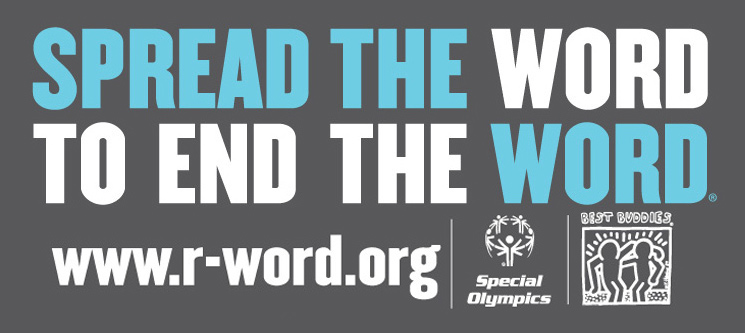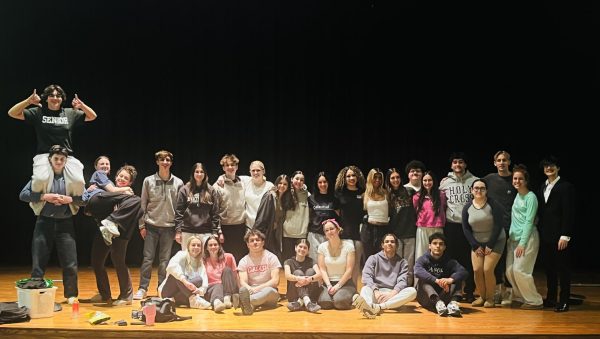Spread the Word to End the Word at DHS
March 4 was National Spread the Word to End the Word Day. This day is meant to spread awareness of how using the R-word (retard) is offensive and derogatory.
Through the coordination of Dean of Facilities Michael Martin, DHS history teacher Laura Magno, and special education teacher Ashley Kocur-Pieront, the initiative and campaign was brought to DHS. Student organizations such as National Honor Society, Key Club, Friends of Rachel, and several classrooms helped create awareness of the campaign and pledge day (March 3) through the use of posters.
“The purpose of this online/social media pledge event was to raise awareness of the derogatory use of the R-word and its negative effects on people with intellectual disabilities and their loved ones,” said Ms. Magno.
As a teacher of students of all ages at DHS, she hears much of the vulgar language that is used by kids these days. She said, “If students are using inappropriate language, it needs to be addressed. I think all too often people don’t really think about the words they are saying, whether that word is the R-word or another word that is derogatory. The R-word is offensive and can have a negative effect on those with intellectual disabilities and their families.”
This campaign began as an initiative to create a more accepting attitude and community for all people. Using a term like “retarded” in a politically incorrect manner has lead to stigmatization.
“Mental retardation” is the outdated medical term for what is now known as intellectual disabilities. Intellectual disabilities are a biological illness and should be treated with a serious attitude and the respect that it deserves.
The R-word has become synonymous with insults to describe someone or something being stupid. “In no way are the people with intellectual disabilities stupid. They’re some of the happiest people I’ve ever met; they never fail to make me smile. I don’t know how the word ‘retard’ could go from being a medical diagnosis to something so negative,” said DHS senior Glenna Forgue, who is interested in becoming a special education teacher in the future.
Intellectual disabilities can stem from problems during the pregnancy such as the mother getting an illness or infection, drinking alcohol and abusing illegal drugs, the baby receiving abnormal genes, being born premature, or facing a lack of oxygen during childbirth. As defined by the American Association on Intellectual and Developmental Disabilities, “Intellectual disability is a disability characterized by significant limitations in both intellectual functioning and in adaptive behavior, which covers many everyday social and practical skills. This disability originates before the age of 18.”
As the term “retarded” has become outdated in the medical field, it is still used as a slang term. “I think it’s [the R-word] a lot less prevalent than it used to be for people to use it in a derogatory way, but this day will spread awareness and make people pause the next time they hear it or say it,” said DHS teacher assistant Sarah Labossiere.
To Ms. Magno, this campaign is more than just raising awareness of the R-word. “It’s about changing the attitudes of segregation, ignorance, and hate to attitudes of acceptance, inclusion, tolerance, and understanding.”







